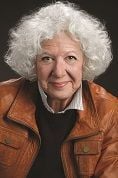A Meditation To Help You Fight Cancer
This immersive, hypnotic guided cancer meditation offers 41 relaxing, inspiring minutes of guided imagery and affirmations designed to help the body mobilize a strong immune response to fight cancer naturally, alongside the therapies provided by the more conventional treatments of chemotherapy, radiotherapy and surgery.
Guided imagery is a hypnotic, mind-body therapy that consists of healing words and images, set to soothing music, to achieve specific healing or wellness goals. Repeated listening once or twice a day for 2-3 weeks ensures maximum impact.
The guided imagery shows listeners natural ways to fight cancer with a narrative that imagines tumors shrinking and fighter cells triumphing over cancer cells, while a protective cushion of love and support surrounds the listener. The result is a dissipation of fear and discouragement, and an upturn in hope, motivation and positivity. A separate track of affirmations bolsters the healing, hypnotic cancer meditation with brief, positive suggestions in a format that can be heard and enjoyed while engaged in other activities, including driving. The track list is as follows:
- Introduction (4:54)
- Guided Imagery (17:08)
- Affirmations (19:26)
This Health Journeys™ cancer meditation was written and narrated by noted mind-body, holistic health pioneer Belleruth Naparstek, scored to the immersive music of Steven Mark Kohn, and produced by the Cleveland Orchestra’s Bruce Gigax.
Listen to a sample and see for yourself why the Mayo Clinic, Johns Hopkins and Kaiser Permanente offer these powerful mind-body tools to their patients, to keep emotional resilience and resourcefulness alive and well during a stressful time. (41 min.)
 Belleruth Naparstek
Belleruth Naparstek
Belleruth Naparstek AM, ACSW, is a clinical social worker, author, and creator of a large library of guided imagery programs that target specific health and mental health challenges. She is known for introducing guided meditation to mainstream health systems and co-founded Health Journeys with George Klein in 1991.





